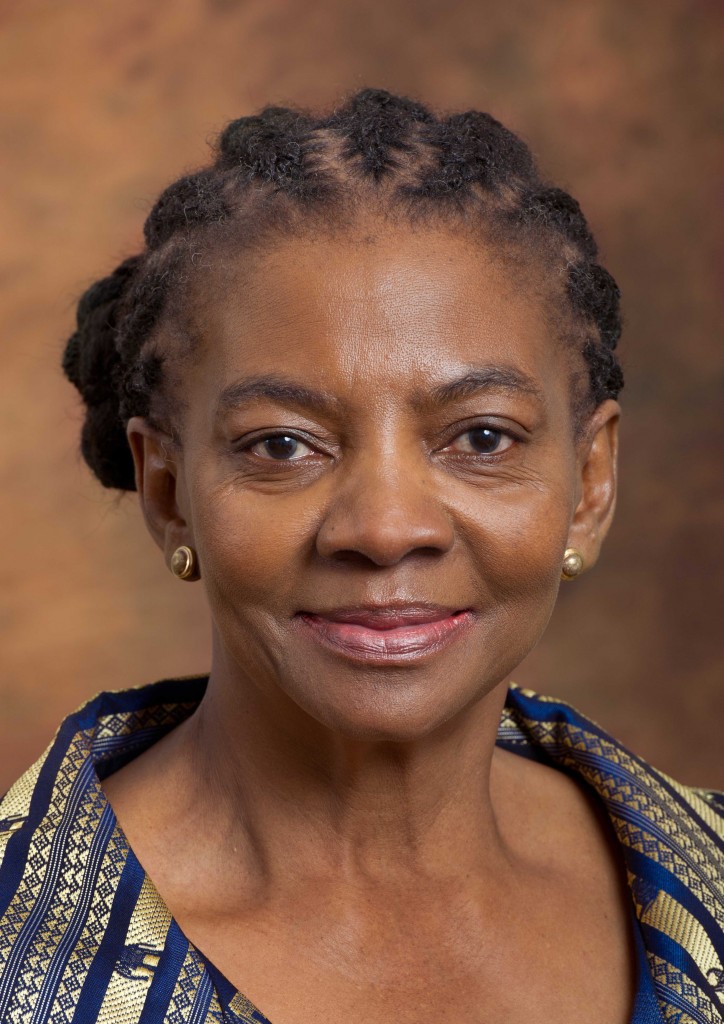ASTANA – Deputy Minister of International Relations and Cooperation Nomaindiya Mfeketo visited Astana from Nov. 5-6 to co-chair the fourth round of South Africa-Kazakhstan Bilateral Consultations with Deputy Minister of Foreign Affairs of Kazakhstan Askar Mussinov and address the first Kazakhstan-South Africa Business Forum held under the bilateral consultations.
Her mission also included a lecture at the Kazakh Humanitarian Law University (KAZGUU) and promotion of people-to-people contacts. Mfeketo suggested students, artists, religious leaders and other members of both communities become conduits for creating deeper connections.
During the bilateral consultations, the countries agreed to cooperate and exchange experience in mineral mining and geology; oil, gas and renewable energy; agriculture and agro-processing; tourism; science and technology; higher education and training; trade and investment and innovation.
Addressing the business forum on Nov. 5, Mfeketo noted that South Africa hoped this first forum would become permanent, as South Africa has not yet fully explored the opportunities of Kazakhstan in business. Total trade between the two countries in 2013 was $5.41 million, but the potential is far greater, she said. The two countries have much to learn from each other on their development paths, Mfeketo said.
“South Africa and Kazakhstan enjoy excellent bilateral relations and the strong bond of friendship between our two countries deserves to be translated into tangible trade and investment benefits on both sides,” the deputy minister said. “South Africa attaches great importance to its relationship with Kazakhstan and regards the country as an important player in the global energy sector as well as a leader within the Central Asian region.”
“The challenge today is to find and link – through our networking interactions – those areas of our economies which are complementary and mutually beneficial. … We do indeed have the potential to develop dynamic partnerships in various industries, as was clearly demonstrated already, amongst others, by the ongoing contact between the PetroSA and KazMunayGas companies,” she said. Infrastructure development, mining, agro-production, energy, trade, the defence industry and tourism were among the industries she noted as having great business partnership potential.
Mfeketo called Africa, with its market of nearly 1 billion people and vast natural resources, the world’s next growth area. Kazakhstan, which has been pursuing closer ties with the region, establishing embassies in Ethiopia and South Africa, appointing an ambassador as an observer to the African Union and establishing diplomatic relations this year with Togo, is placing a high priority on expanding cooperation with the region in the coming years.
The two countries share a common role as regional leaders, Mfeketo said in an interview with The Astana Times on Nov. 5, adding that cooperation between them is key to extending cooperation in their respective regions.
During this visit, it was agreed to foster business-to-business development by forming a joint business council to be managed by the business community from both countries. The joint business council will report to the bilateral commission that is held annually, Ambassador of South Africa to Kazakhstan Shirish Soni said in a Nov. 5 interview. Geology, mining technology and machinery, environment management, renewable energy, tourism and agriculture and food products were identified as the most promising sectors for cooperation.
“The business community from South Africa and Kazakhstan welcomed the idea and agreed to take the process forward in preparation for future high level visits,” he said.
But people-to-people connections are also a foreign policy priority for South Africa, and Mfeketo was keen to promote connections between the communities of the two countries, identifying women, business, students, academics, universities and artist to begin with. The nation is also interested in having South African religious leaders join the Congress of Leaders of World and Traditional Religions that meets every three years in Astana.
At KAZGUU University, Mfeketo directly invited students to come to South Africa. “South Africa is also committed to promoting the quest for a better world through our international engagements. Just earlier today, I addressed the business community from Kazakhstan and South Africa, and I emphasised the importance of people-to-people relations. Students are a core part of that and you have an invitation from me, through my counterpart here, to come to Cape Town in South Africa as part of the delegation for genuine people-to-people relations.”
The KAZGUU Diplomatic Club, a foreign policy lecture and discussion platform, was launched this year with Soni appointed its chairman. During her visit, Mfeketo called on all diplomatic missions in Astana to participate in the Diplomatic Club and contribute books about their countries’ history, politics, economies, culture and languages to the library.
South African universities are in talks with Kazakhstan’s Bolashak Presidential Scholarship programme, Soni told The Astana Times, noting that South Africa is a major donor of books to Kazakhstan’s international library. The drive to build university-to-university partnerships was high on the agenda of this visit, he said, and the exchange of academics and students, joint research and course development, and harmonising standards were all topics of focus. South Africa is targeting Kazakhstan’s Al-Farabi National University, KIMEP, the Abylai Khan Kazakh University of International Relations, Gumilyov Eurasian National University, KazGUU and Nazarbayev University for partnerships, he said.

